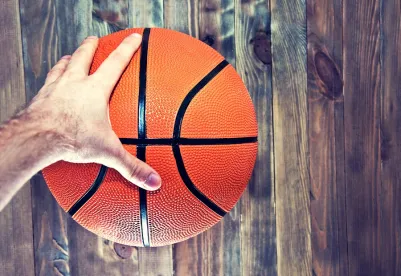As discussed in a recent blog post, on January 21, 2024, the Attorneys General for Tennessee and Virginia filed a lawsuit against the NCAA, arguing that a new set of NCAA rules governing certain Name, Image, and Likeness activities in college athletics were violative of Section 1 of the Sherman Act. In their complaint, the Plaintiff-states sought, among other forms of relief, “a Temporary Restraining Order (TRO) and a preliminary and permanent injunction to stop the NCAA from enforcing the [rules].”[1]
On February 23, 2024, the Court granted the preliminary injunction. The crux of the Court’s decision lies in its determination that the NCAA’s rules, which prohibit athletes and recruits from negotiating NIL compensation in certain circumstances[2], amount to price-fixing, stifling competition and depriving athletes of their rightful economic opportunities. In its 13-page memorandum, the Court remarked that:
“Without relief, the NCAA will continue to deprive Plaintiff States’ athletes of information about the market value for their NIL rights, thereby preventing them from obtaining full, fair-market value for those rights. . . . Their labor generates massive revenues for the NCAA, its members, and other constituents in the college athletics industry — none of whom would dare accept such anticompetitive restrictions on their ability to negotiate their own rights. Those athletes shouldn’t have to either.”[3]
The Court’s decision is significant as it challenges the NCAA’s longstanding regulations regarding amateurism in collegiate sports. The injunction further enjoins the NCAA “from enforcing its NIL-recruiting ban or taking any other action to prevent prospective college athletes and transfer candidates from engaging in NIL discussions and enrollment. . .” during the pendency of lawsuit, and also enjoins the NCAA’s enforcement of its “Rule of Restitution” with regard to the ban.[4] Meaning, as to the latter, pausing enforcement of this rule prohibits discipline from the NCAA after the fact for any alleged violation of the other rules.
The NCAA has a right to appeal the Court’s decision granting the Plaintiff-states’ preliminary injunction to the U.S. Court of Appeals for the Sixth Circuit. Unless they do so, the injunction will remain in place for months or even longer depending on when trial is held and the issue ultimately determined.
[1] Tennessee and Virginia Are Challenging NCAA NIL Restrictions, Squire Patton Boggs, https://www.sports.legal/2024/02/tennessee-and-virginia-are-challenging-ncaa-nil-restrictions/ (February 1, 2024).
[2] These rules provide that “entities that wish to engage in NIL payments and deals are forbidden from engaging with a prospective or actual college athlete until the athlete: (1) signs a letter of intent, (2) participates in summer activities, (3) practices with the team or (4) attends class at the school.” Id.
[3] Federal Judge Grants Injunction Suspending NCAA’s NIL Rules, CBS News, https://www.cbsnews.com/news/federal-judge-grants-injunction-tennessee-nil-case-suspends-ncaa-rules/ (February 23, 2024).
[4] “Under the NCAA’s Rule of Restitution, the NCAA can retroactively punish a student-athlete that competes in NCAA competition based on an injunction that is later overturned. The Court’s restraint of the NCAA’s imposition of its Rule of Restitution ensures that student-athletes and prospective student-athletes can freely discuss NIL opportunities without having concerns that the NCAA will try to punish them after the fact, allowing them to fully explore the free market value of their NIL.” Tennessee Court Issues Major Decision Enjoining the NCAA’s NIL-Recruiting Ban Effective Immediately Nationwide, McLane Middleton, https://www.mclane.com/insights/tennessee-court-issues-major-decision-enjoining-the-ncaa-nil-recruiting-ban-effective-immediately-nationwide/ (February 27, 2024).




 />i
/>i

